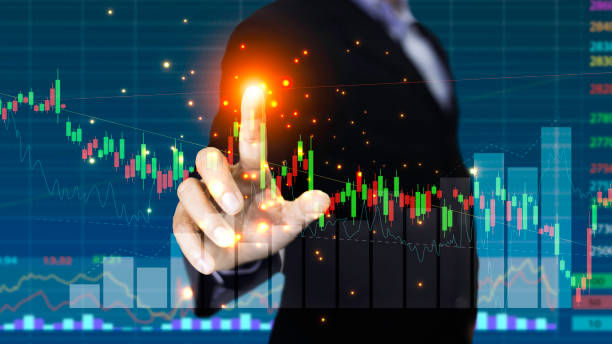Meta Description:
Discover how geopolitical tensions, wars, and international conflicts affect currency values. Learn how forex traders interpret global events and manage risk effectively.
Introduction
In the interconnected world of global finance, political events can have as much impact on forex markets as economic data. Wars, elections, trade disputes, and diplomatic tensions often cause sudden and dramatic currency fluctuations.
In this article, we’ll explore how geopolitical events influence forex markets, examine real-world examples, and provide strategies for traders to navigate these high-stakes situations with greater confidence and control.
What Are Geopolitical Events?
Geopolitical events refer to significant developments in global politics that can disrupt economic stability or influence investor sentiment. Common examples include:
- Armed conflicts or wars
- Trade wars and sanctions
- Political instability or regime changes
- Terrorist attacks
- Diplomatic tensions between countries
These events create uncertainty, which markets dislike. In the forex world, uncertainty often leads to risk-off sentiment, where investors pull money out of risky currencies and shift to safe-haven assets.
The Safe-Haven Effect
When geopolitical tensions rise, investors tend to seek safety in more stable currencies, a phenomenon known as the “flight to safety.”
Common Safe-Haven Currencies:
- U.S. Dollar (USD)
- Swiss Franc (CHF)
- Japanese Yen (JPY)
These currencies often strengthen during global crises because they are backed by strong economies and perceived as stable.
Example:
During the Russia-Ukraine war in 2022, the Russian Ruble (RUB) plummeted, while the USD and CHF appreciated due to global demand for safety.
Impact of Specific Geopolitical Events on Forex
1. Wars and Military Conflicts
Armed conflict can devalue a country’s currency due to economic instability, disrupted trade, and damaged investor confidence.
Example:
The invasion of Iraq in 2003 and the subsequent instability in the Middle East often led to increased volatility in oil-linked currencies and a stronger USD.
2. Trade Wars and Sanctions
Trade disputes, tariffs, and sanctions can hurt a nation’s economy and its currency value.
Example:
The U.S.-China trade war (2018–2019) triggered volatility in the Chinese Yuan (CNY), with USD/CNY rising significantly during escalations.
3. Political Instability
Elections, protests, or sudden government changes can shake market confidence.
Example:
The Brexit referendum in 2016 caused the British Pound (GBP) to drop sharply after the UK voted to leave the EU, due to concerns over economic and political uncertainty.
4. Terrorism and Civil Unrest
Unexpected attacks or widespread unrest can spook markets and lead to capital flight.
Example:
Major terrorist attacks in Europe in the 2010s temporarily weakened the EUR as investors reassessed regional risk.
5. Diplomatic Tensions
Hostile relations between major nations can unsettle markets, especially if they involve threats of conflict or trade retaliation.
Example:
Tensions between North Korea and the U.S. have historically led to JPY appreciation due to its safe-haven status during East Asian instability.
How Traders Monitor Geopolitical Risk
1. News Feeds and Alerts
Traders use real-time news platforms like Bloomberg, Reuters, or Twitter to stay informed.
2. Economic Calendars and Political Timelines
Calendars highlight elections, policy decisions, and international summits that may impact markets.
3. Volatility Indicators
Tools like the VIX (Volatility Index) or forex-specific indicators help traders gauge overall market fear levels.
Trading Strategies During Geopolitical Events
1. Safe-Haven Pair Trading
Buy safe-haven currencies like USD/JPY or sell riskier ones like AUD/JPY during geopolitical stress.
2. Reduced Position Sizing
To manage unpredictable volatility, traders often reduce lot sizes or avoid trading entirely.
3. Wider Stop-Losses
Because price swings are larger, traders use wider stop-losses but compensate with smaller position sizes to manage risk.
4. Wait for Confirmation
Avoid trading the initial shock—wait for trends or retracements to develop for clearer entry points.
Long-Term vs. Short-Term Impacts
- Short-term: Sudden spikes in volatility, spreads, and slippage after breaking news.
- Long-term: Currency trends may shift due to altered economic trajectories (e.g., sanctions affecting trade or investment).
Example:
Sanctions against Russia led to long-term changes in Ruble usage and investment flows into emerging markets.
Case Study: Brexit’s Forex Impact
- June 2016 Referendum: GBP/USD dropped over 10% in hours after the leave vote.
- Long-Term Impact: Ongoing negotiations and uncertainty kept the GBP volatile for years.
- Lesson: Major geopolitical decisions often cause both immediate shocks and prolonged instability.
Managing Risk in Uncertain Times
- Avoid overleveraging during major political headlines.
- Use pending orders to control entries.
- Watch for central bank reactions—many will step in to stabilize currencies during major crises.
- Have a plan for “event risk”, including non-farm payroll weeks, major speeches, or global summits.
Conclusion
Geopolitical events are unpredictable, but their impact on forex markets is undeniable. By understanding how political tensions influence currency trends and risk appetite, traders can better prepare for market shocks and avoid costly mistakes.
Stay informed, stay disciplined, and always account for the possibility that a headline—anywhere in the world—can move the markets in seconds.
Internal Link Suggestion:
Read next: “Commodity Prices and Their Correlation with Currency Markets”
External Resource Suggestion:
Track geopolitical risk updates on Geopolitical Futures


